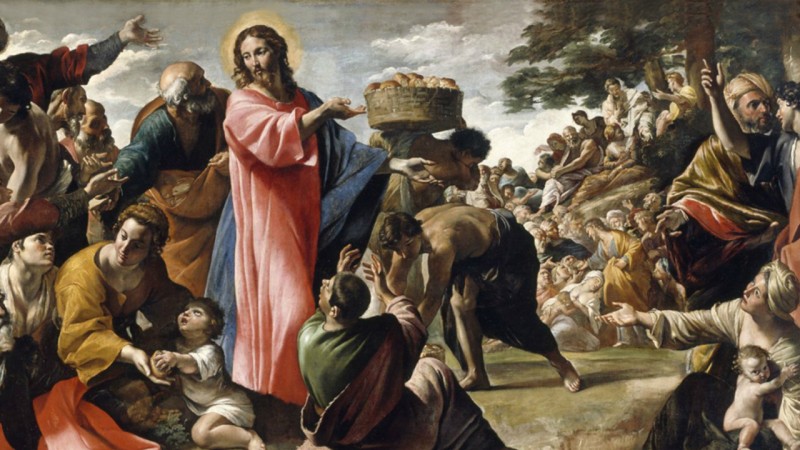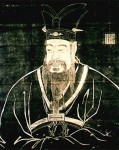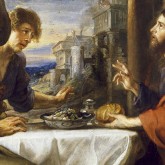The Multiplication of the Loaves and Fish and the Fight Against Waste
In my book O Capital de Deus [The Capital of God] I comment on a passage from the Gospel that brings us an instructive lesson.
Knowing the Sovereign Statutes of God’s Economy, which are still ignored by most human beings, Jesus, the Ecumenical Christ, the Divine Statesman, was able to perform the miracle of the multiplication of the loaves and fish, according to Matthew’s accounts, 14:13 to 21.
The first multiplication of the loaves of bread and fish – Jesus Feeds Five Thousand

13 When Jesus heard that John the Baptist had been beheaded on Herod’s orders, He withdrew by boat privately to a solitary place. Hearing of this, the crowds followed Him on foot from the towns.
14 When Jesus landed and saw a large crowd, He had compassion on them and healed their sick.
15 As evening approached, the Disciples came to Him and said, “Lord, this is a remote place, and it’s already getting late. Send the crowds away, so they can go to the villages and buy themselves some food.”
16 Jesus, however, replied, “They do not need to go away. You give them something to eat.”
17 “Lord, we have here only five loaves of bread and two fish,” they answered.
18 “Bring them here to me,” The Master said.
19 And He directed the people to sit down on the grass. Taking the five loaves and the two fish and looking up to heaven, He gave thanks and broke the loaves. Then He gave them to the Disciples, and the Disciples gave them to the people.
20 They all ate and were satisfied, and the Disciples picked up twelve basketfuls of broken pieces that were left over.
21 The number of those who ate was about five thousand men, besides women and children.
Furthermore, let us not forget what the Divine Economist taught us about the personal capacity of every human being, when He said: “You are gods. I am going to the Father, you will remain here on Earth. . . . Therefore, you will do even greater things than these.” (The Gospel according to John 10:34 and 14:12)
Someone analyzing the previous passage, perhaps out of idleness, might argue that Jesus is a unique case and that is why there are no parameters for equating our competence with His, which is heavenly superior. One way of opposing this reasoning would be to consider that even though we are not yet at the highest spiritual level of the Master of masters, we are capable of simple gestures that make an enormous difference.
We also have within us the power to multiply loaves and fish, beginning with conscious consumption. Let us strive, then, to stop our waste. How much food we throw away because of our negligence! What is discarded by the wealthy populations of the world would be enough to put an end to the hunger of those who suffer true torment. It is only one step but yes, it is a considerable step. And just by the sum of seemingly small actions we will achieve the greatest possible success.

Confucius
As Confucius observed (551–479 BC): “The man who moves a mountain begins by carrying away small stones.”
I stress here what the Evangelist Matthew reveals in verse 20 of chapter 14: “They all ate and were satisfied, and the Disciples picked up twelve basketsful of broken pieces that were left over.”
That is to say, Jesus determined that they should not throw away what was left over. The significant amount collected by the Disciples would benefit those people or others on another occasion. I always reiterate that today’s crumbs are tomorrow’s feast. Let us reflect on this.

The comments do not represent the views of this site and are the sole responsibility of their authors. It denied the inclusion of inappropriate materials that violate the moral, good customs, and/or the rights of others. Learn more at Frequently asked questions.